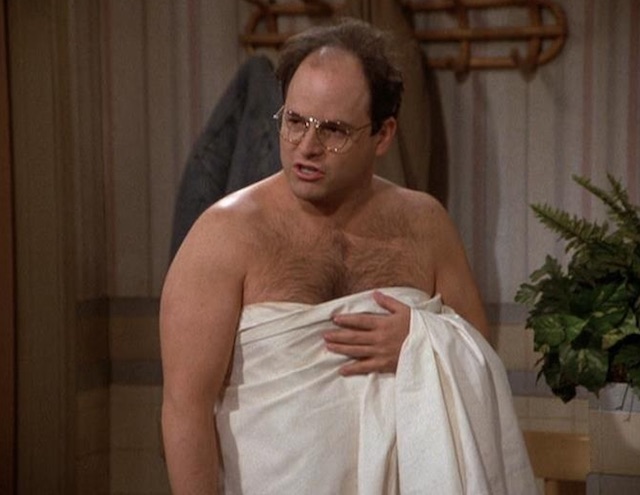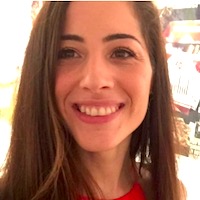
There is an episode of Seinfeld in which George Costanza decides—because his life is an epic fail—that the natural solution is to go against his better judgment, and instead, do just the opposite.
When he doesn’t want to approach a woman he finds attractive, he goes up to her and professes that he is unemployed, lives with his parents, and finds her attractive. Instead of ordering a tuna salad on toast with coffee, he orders a chicken salad on rye, untoasted, with potato salad.
“If every instinct you have is wrong—then the opposite would have to be right,” Jerry tells him.
In many ways, this is an accurate depiction of a powerful metaphysical truth: what our ego (the conscious thoughts with which we identify) tells us is often contrary to what spirit, or our higher self, would have us do.
In this way, our higher self (that intuitive voice that feels like a gut feeling or inner-knowing), goes against what our rational mind might suggest. It asks us to rethink the thoughts, beliefs, and patterns we hold that feel most comfortable, the ones we learned during childhood, from our families, or society.
There will be a natural inclination for our egos to want to hold on to grievances and judgments of other people, but the voice of our higher self will urge us to forgive and let go of the past. Our egos, afraid of being vulnerable, will want to shut down and pull away from someone, but our higher self will want us to open our hearts and trust. Our egos will feel it’s unsafe to take a risk and quit our job to pursue our passion, but our higher self will encourage us to become emboldened and take the leap.
The question that naturally arises is: why is this so?
Why would I have what feels like an innate proclivity toward behaviors or patterns that are adverse to that of my higher self, or what the universe wills for me? It just doesn’t make sense.
It is because we act out of a fearful belief system. From the time we are born, we learn and pick up beliefs of lack, shame, guilt, and the need to protect ourselves in an unsafe world.
Our parents taught us to live in the “real world.” We earned grades in school that told us we weren’t good at art, or science, and we felt we had to act pragmatically, pushing our dreams aside, to earn a degree that would allow us to purchase a house one day and invest in a 401K.
Oftentimes, these ideas become rooted in our subconscious minds, manifesting as a desire to protect ourselves not only from what feels unsafe, but also from positive people and experiences, such as falling in love. Because maybe, as a child, we watched our parents, and by viewing their dysfunctional relationship we linked love and pain in our subconscious.
The idea of the need to protect ourselves in an unsafe world might have manifested in the desire to fit in, attain a certain level of success, find the perfect partner, the perfect house, and maintain an image to the outside world that we have it all together. Because then—we would have made it. We would actively contribute to society and others would judge us as successful and worthy.
We hold countless beliefs that don’t serve us, and it is the thought-system of fear to which we are so tethered that is informing every decision we make: who we date, what we eat, where we live, every judgement we hold of ourselves or others.
Moreover, our go-to responses are often rooted in fear because we don’t realize that it is more natural for our minds to reach for fear than it is for us to reach for thoughts that are empowering, ones that are founded upon the idea that we are enough, we don’t have to change, or fit in, or earn love.
Instead, we find ourselves saying no instead of yes, or reciting the reasons why that project won’t work instead of coming up with reasons why it will. That colleague we don’t know very well asks us to come over for drinks and immediately we scan our minds for excuses before we find reasons to join and step outside of our comfort zone.
What our higher self would have us do almost feels illogical, beyond reason. Wait, I should keep dating this person? I should quit my job? I should should move to another state? Guidance from spirit comes from a place of love, of trusting in the beneficence of the universe, and so it can feel far-fetched to the thought-system of the ego.
We will have an intuitive thought to forgive someone, or take a spontaneous trip when it doesn’t feel logical, and our friends and family will back up the voice of our ego, which will tell us that we are being radical dreamers, that we need to face reality, that life can be hard, and we have to protect ourselves at all costs.
So how can we live our lives in such a way that we follow the guidance from our higher self more so than the voice of our ego? Our work involves the following three steps:
We consider the areas in our life that feel challenging or static. These are the areas that we are trying to figure out with our egos, or rational minds, and we are not in a state of natural flow because we have resistance. We might have wonderful careers, and when it comes to work, we listen to our intuitive guidance. But in romance, we hold on to negative patterns and listen to our egos, which might mean that we experience difficulty in love.
We need to discern between the voice of ego and that of our higher self. This process of discernment happens naturally as we develop a practice of self-awareness. This can be meditation, prayer, qi gong, or any other spiritual path. The trick is to have a discipline that allows us to look within and recognize our attachments to and identification with our egoic thoughts and constructs.
Make the choice that feels the most unlikely. Shout a resounding yes when we want to say no, trust when we don’t feel it’s safe, or as George Costanza might suggest, order chicken salad when we have developed the pattern of ordering tuna.
The voice of our ego will always be there, feeding us fearful thoughts about how we’re not good enough, or how we shouldn’t trust someone. If there are areas of our lives where we feel we are struggling, we can do the opposite. We can radically shift our lives by making radically different choices.
Each choice we make leads us to a different possible future. Even something as simple as a making a different dietary choice, when done repeatedly, can change our body, and even our consciousness, for the better.
If the choices we’ve been making have led us to struggle—then the opposite must be the path to joy.
~
Author: Jessie Leon
Image: Seinfeld/YouTube
Editor: Lieselle Davidson
Copy Editor: Emily Bartran
Social Editor: Nicole Cameron











Read 0 comments and reply